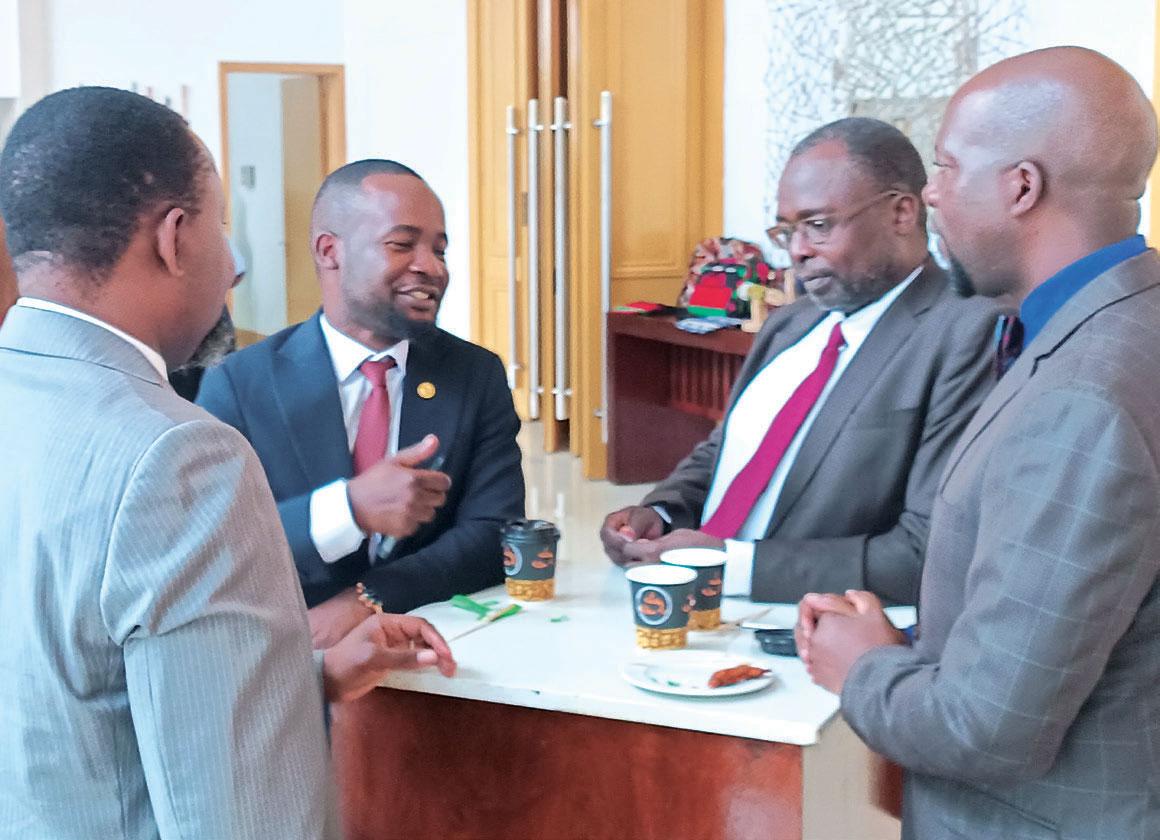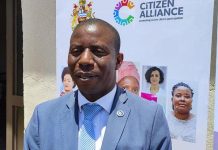Africa-Press – Malawi. Finance Minister Sosten Gwengwe Wednesday wore a brave face and admitted the challenge of drawing a balanced 2023-24 national budget in an environment of escalating statutory obligations and weak revenue generation.
Gwengwe was speaking in Lilongwe during the 2023-24 Pre-budget Consultations Meeting where he engaged economists, the academia, health and education rights activists.
According to Gwengwe, he is already starring at statutory obligations amounting to a whooping K1.463 trillion even before he starts allocating resources to 61 government departments and agencies and over 30 local councils.
He told the gathering that the cost of salaries and wages, even before effecting the 35 percent salary hike demand by the country’s civil servants, who nearly went on strike on January 9, stands at K700 billion.
Gwengwe added that the pensions’ cost stands at K116 billion, with debt repayment seen at K645 billion. He said while statutory obligations continue to soar, the Malawi Revenue Authority (MRA) has been given a revenue target of K1.5 trillion.
“The point I am trying to make is, if we collect K1.5 trillion and spend K1.463 trillion, which is almost K1.5 trillion, on paying people a salary and settling our debt— our past sins—and we have 61 votes in our national budget, health, agriculture, education and several other votes and that excludes councils that are 30 plus [the cost is huge].
“But these two votes, public debt and salaries, are taking up the entire collection of MRA for the whole year. So, the big question to the Ministry of Finance now becomes: ‘Kodi zipatala ziyenda bwa? Kabwerekeni. Nanga ulimi utheka bwa? Kabwerekeni. Nanga maphunziro ayenda bwanji? Osakangobwereka bwanji? [the easy way out is often by borrowing money to meet health, agriculture and education needs]. And the big question is: Is that the trajectory we, as a country, want to be on?” he asked.
He warned that on that trajectory, Malawi could end up bearing children who are a lost generation at birth, with no opportunities, future and hope available for them.
“And this is the whole essence of this exercise. Kulibe anasayinira ndalama kuti kwabwera $6.8 billion ya chani-chani? That’s just nonsense. The real issues are the ones we are talking about. Osati kudzangosewera kuti Bridgin Foundation, hey chanichani chani, that’s nonsense. Put it aside.
“The real question is: Can we have a budget that balances? Should we continue having a budget that relies on borrowing. And if we have to stop borrowing, especially domestic borrowing, which this year alone was at over K800 billion just to get by, then we have to start rethinking about the things we are funding,”Gwengwe said.
He gave an example of subvented organisations, asking as to whether it was proper for an organisation to be subvented forever. He said the whole idea of subventing is like hand-holding to allow the organisations to grow so that they stand on their own.
“The authorities that we have. This authority, that authority and there are too many of them. So as we continue engaging, the kind of questions we need to be able to ask ourselves are: Is what we are funding necessary? Is there a way we can reduce what we are funding?
“Because if you just take the framework and continue putting in money because last year we also gave them, then we are not doing justice to our budget. We will continue having trillions [of Kwacha] in the budget but the value of it tingopangira kuti tinazolowera,” Gwengwe said.
He urged MRA and the Ministry of Local Government to liaise on how best Malawi could formalise the informal sector. The local Chancellor of the Exchequer challenged stakeholders to think about where resources would come from for their various budget demands.
According to Gwengwe, there is always a temptation of voicing out what needs to be implemented in the budget without necessarily looking at the resource envelope.
During the meeting, the Economics Association of Malawi (Ecama) asked the Treasury to make realistic exchange rate assumptions in the 2023-24 national budget.
Ecama Executive Director Frank Chikuta said there is a huge gap between the official foreign exchange rate and the cash rate on the market. He said exchange rate assumptions and the availability of foreign exchange will affect the credibility of the budget.
But in its presentation, Lilongwe University of Agriculture and Natural Resources warned, through Senior Monitoring and Evaluation Specialist Henry Kamkwamba, against having a flexible exchange rate in the absence of foreign savings.
Making a quick comment on the presentations, Gwengwe urged presenters to be candid on what government must do without fearing anybody. According to Gwengwe, lack of specific, or more direct, pieces of advice leaves everyone confused.
For More News And Analysis About Malawi Follow Africa-Press






